TEHRAN(Bazaar) –Richard Anderson Falk, United Nations Special Rapporteur on the situation of human rights in the Palestinian territories occupied since 1967, says China’s surprisingly skillful effort to achieve a dialogue between Riyadh and Tehran has created confusion in Washington.
Following is the text of the interview of Bazaar with professor Richard Anderson Falk:
Q: It is planned to hold a meeting this September at the initiative of the Secretary General of the United Nations with the participation of the foreign ministers of eight countries of Iran and Iraq and GCC members. The Secretary General's initiative for regional dialogue is included in UN Security Council Resolution 598, which led to the end of the Iran-Iraq war. What is your assessment of this meeting?
A: It is notable that SC Res. 598 adopted in 1987 has not yet been fully implemented more than 35 years later. In view of the intervening conflicts, especially the US/UK 2003 attack on Iraq undertaken without UN authorization and in violation of the UN Charter this long delay is hardly surprising. Violations included recourse to non-defensive force, ‘shock and awe’ tactics. regime-changing intervention, prolonged occupation, denial of sovereign rights, and failed state-building, it is notable that this old ceasefire resolution is being revived in this serious, seemingly stability-seeking spirit. At this stage it is difficult to anticipate what will result from the meeting because of the diverse motivations of the direct participants and attitudes of such leading influential international actors as the U.S. and China have not been disclosed. The willingness to agree to a regional dialogue that includes Iran is itself an encouraging development, suggesting that Israel’s regional leverage has lessened in 2023 for several interrelated reasons.
It is notable that the forthcoming regional dialogue is structured in a way that brings Iran and Iraq into conversation with (Persian) Gulf countries rather than the entire Arab Middle East or the region as a whole. Syria, Egypt, Lebanon, Palestine have been excluded (along with Israel), and presumably were never invited. This diplomatic framework under UN auspices can also be understood as substituting the UN for the U.S. and even China as a preferred path to realizing a ‘comprehensive, just, honorable, and durable’ peace specified long ago in this Security Council initiative that was designed to restore peace in Iraq. What lies behind the unusual wording of peace in the contemporary setting is not publicly known at this point. It will become clearer in the course of the conference in September provided transcripts of the meetings are released, a concluding Declaration is issued, and the assembled foreign ministers meet with the media before and after the event.
The fact that it is a meeting of foreign ministers, and neither lower level national representatives nor heads of state, suggests a rather high commitment to the event by the participating governments. At the same time, there is no expectation that the dialogue will itself produce immediate or spectacular results. It is best conceived as a promising beginning of a process of reconciliation and coexistence.
Iran stands to gain most from the event, and an ensuing process, as it is definitely a step toward reintegration into the politics of the region and away from continued isolation. Saudi Arabia may also gain increased credibility for its recent efforts to pursue a more independent regional diplomacy, which at times departs from the policies of the U.S. Or maybe this event is favored because it somewhat balances Riyadh’s move toward a normalization with Israel. At this point, such conjectures should not be taken too seriously. The fact that the conference is taking place at all is a hopeful breakthrough considering the conflictual atmosphere of recent decades in the Middle East, particularly in interactions with Iran. A major unknown involves the extent to which non-participating regional and extra-regional actors will exert influence behind the scenes.
Q: After the improvement of the relationship between Iran and Saudi Arabia, improvement in the relations between Iran and other Arab countries can be seen. To what extent can creating a mechanism for regional dialogue be successful in such an atmosphere?
A: This UN sponsored conference seems definitely to parallel recent inter-governmental diplomacy that began normalizing Iran’s relationship with the Arab World after decades of tension and hostile engagement as in the course of the Syrian War that began in 2011. The September conference can also be contextualized in relation to declining U.S. hegemonic ambitions, capabilities, and strategic priorities in the region, and a slowly shifting emphasis on attaining stability. A further consideration is the interplay between Israel’s search for diplomatic normalcy with Saudi Arabia and other Arab countries, and this Iran/Iraq/(Persian) Gulf move toward normalization.
Also relevant is the rise of other regional concerns on the part of the U.S. and others, including non-political challenges within the region encouraging replacing conflictual relations with cooperative ones on a priority basis. Severe stresses are already being experienced throughout the Middle attributable to severe global warming, which has brought record heat impairing health and even livability within the region. Responsible statecraft of regional actors needs more than ever to focus its problem-solving capabilities on these new threats to wellbeing arising out of rising instabilities between modernizing economies and the natural habitat. In this sense, militarism and warfare become expensive distractions from too longed delayed efforts to achieve national and human security under greatly altered ecological and political conditions.
Q: Following the reduction of America's presence in the region, diplomacy in the region regarding important security issues for the countries of the region has increased. Do you evaluate this process as tactical or strategic?
A: It seems to me that caution is in order about present and near future regional roles of major non-Middle East actors. Not only are political differences being reexamined under present conditions, but also the prospect of achieving peaceful coexistence as between the (Persian) Gulf monarchies and the Islamic Republic of Iran, despite their continued adherence to antagonistic traditions of Islamic theology and practice. Another uncertainty concerns whether recent American preoccupations elsewhere in the world, especially Ukraine and Taiwan, have given Saudi leader the confidence needed to engage with Iran and others beyond its borders reflecting its national interests. Also relevant is whether prolonged suffering from regional hostility and an international sanctions regime has increased Iran’s interest in the potential benefits of dialogue, especially if it is allowed to be a stepping-stone toward reconciliation and relations based on common interests and mutual benefits. Both Iran and Saudi Arabia have likely been negatively affected by their antagonistic involvements in the political turmoil in Yemen, which may underlie their joint willingness to substitute stability for conflict as the cornerstone of their future national security.
Q: China's participation in the region - although it does not have a wide military and security aspect at the moment - what effect will it have on regional trends?
A: The increased diplomatic activism of China contrasts with the essentially militarized diplomacy practiced previously by the United States in the region often openly in support of Saudi and Israeli goals, as in Yemen or with respect to the Palestinian struggle for basic rights. I believe China’s surprisingly skillful effort to achieve a dialogue between Riyadh and Tehran has created confusion in Washington. Should the U.S. attempt to reassert its hegemonic ambitions or should it pursue its own version of normalizing and stability-oriented diplomacy? To what extent is China motivated by its concerns relating to energy security? And to what extent is China sending the U.S. Government a message to the effect if it intrudes on the traditional Indo-Pacific preoccupations of China, then China will intrude in areas where there has been a strong U.S. presence.
As I consider the Ukraine War to be partly about geopolitical alignments after the end of the Cold War in the early 1990s, much will depend on whether global security maintains the unipolar structure that emerged after the Soviet implosion or moves back to some new type of bipolarity (perhaps China/Russia v. NATO) or transitions to forms of multipolarity that seek cooperative global problem-solving for the sake of national, and even more, human security.
Q: To what extent can commercial relation and economic interdependency be used for regional dialogues?
A: I believe that robust commercial relations under most conditions produce positive forms of economic interdependency, which in turn strengthens processes of conflict-resolving dialogue. Such a momentum also builds the political foundations for increases in trade, investment, tourism, cultural exchanges in the common interest, and yielding mutual benefits. And yet such economic dimensions cannot be assumed as necessarily having these positive effects. It depends on the balancing of interests and perceptions, as well as the presence or absence of geopolitical pressures. It is difficult to generalize, and always depends on contextual factors, which are constantly changing.
For reasons suggested earlier, regional and global developments currently support stabilizing diplomacy and the expansion of mutually beneficial economic relations among countries that have spent the last half century or more in unproductive conflict. The impact of such developments on relations with Israel, especially considering that the current internal ferment in that country remains a great, yet relevant, unknown. If the Netanyahu government holds onto power it may try to distract attention from internal confrontations by restoring national unity by recourse to actions that deliberately increase regional tensions, especially with Iran, backed by inflammatory claims that Israel’s national security is at stake. It is questionable whether this old diversionary game will work under present conditions, but it could be dangerous nevertheless.

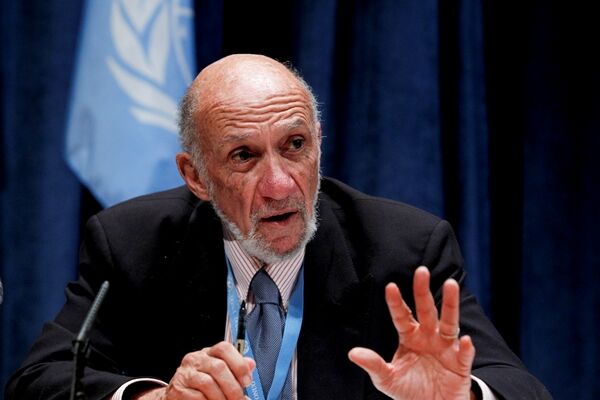




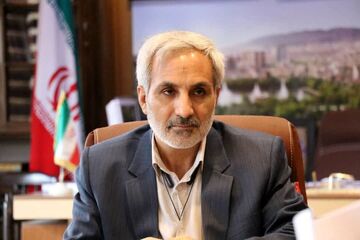



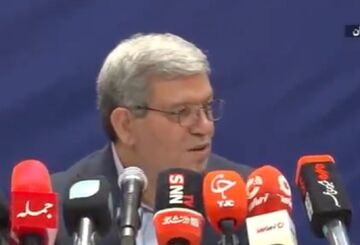
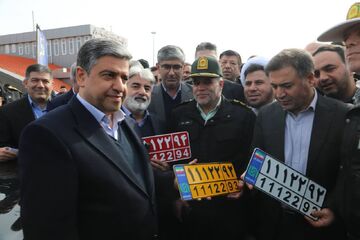

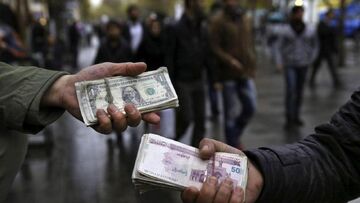

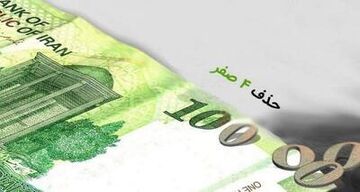
نظر شما